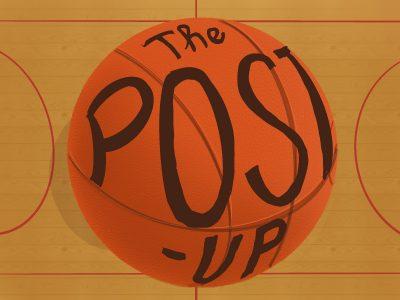On Wednesday night, Draymond Green received a technical foul in the first Golden State Warriors game of the 2024-25 NBA regular season. While this may not come as a surprise, I believe that it isn’t necessarily indicative of his behavior to come.

It’s worth noting the tech was awarded due to Green’s persistent questioning of referee Tre Maddox after he fouled Portland Trail Blazers forward Deni Avdija. On social media, some fans presumed it was a violent encounter, but it wasn’t –– clearly, they did not watch the game.
As Stephen A. Smith noted on ESPN’s “First Take” Thursday, Green’s name is now linked with bully-ball era greats such as Rasheed Wallace for his notorious interactions with players and referees alike. The current stigma surrounding Green is a product of the series of incidents plaguing his last season, which many feared would continue in the future.
Following an intense back-and-forth with Green about his character and fitness at the Warriors’ Media Day, San Francisco Chronicle columnist Scott Ostler prompted the following question: “Can Green give us some assurance that he has put the Danger Zone behind him, that this season will be all basketball and no baloney?”
Is it fair to ask such a question of any player? Additionally, are we asking that of any other player? If the answer to both rebuttals is, “No, but it’s Draymond,” then we should interrogate why the weight we have afforded to Draymond’s reputation trumps his holistic behavior.
On Dec. 13, 2023, Joe Dumars, the NBA’s executive vice president and head of basketball operations, announced that Warriors forward Green was suspended indefinitely. This included additional stipulations in the form of counseling and meetings with representatives of the league, the Warriors and the National Basketball Players Association.
The decision explicitly accounted for Green’s “repeated history of unsportsmanlike acts.”
Initially, many pundits and fans alike found the decision favorable, albeit unclear. Joe Dumars appeared on “First Take” on Dec. 14, the day following the announcement, and Stephen A. Smith asked what indefinite meant from a “minimum perspective.”
Dumars reiterated throughout the interview that the priority was to help Green get better, and the indefinite status meant the league intentionally had no set number for the amount of games that Green would not be eligible to play.
“When you say indefinite and then you throw out a minimum number on it, you’re not really living up to what you’re saying that you really want to do,” Dumars said in the interview.
The situation would re-emerge and be met with a significant amount of disapproval weeks later when Green returned to the court on Jan. 15, meaning that the indefinite suspension ultimately amounted to a total of 12 missed games.
Green did not attempt to formally appeal the executive decision via the NBPA, and the weight afforded to the previous “indefinite” indicator was found by many to be insufficient and unconvincing.
I recognize the objection to the NBA punishing Green in the form of withholding his pay while he was suspended, as Andscape’s David Dennis Jr. deemed this punishment arbitrary considering the NBA’s stated goal of amelioration.
However, I’d argue that it does Green a disservice to suggest the pay he missed out on for the 12 missed games was his incentive for getting better. Green’s incentive was to be seen as the person he knows he can be, who is distinct from the player subjected to ample criticism and condemnation.
Green has openly shared his account of what transpired during his last suspension, and his time in counseling granted him the opportunity to ask introspective questions: “What do you want the world to know about you?”
I contend that we should allow him to show us in his own way, as he is giving us a masterclass in vulnerability, not perfection. Green is admittedly capable of recognizing his behavior was immature.
Green’s deep reflection via his podcast was not the first time he has publicly apologized or invited us to listen to his thought process. But this is part of the human experience that is learning from our mistakes: We are prone to disappointing ourselves and others. That doesn’t mean we can’t get it right if we continue to try.
Head coach Steve Kerr did not make excuses for Green in his post-game comments on opening night.
“You can’t have it all,” he conceded. “You can’t ask Draymond to play with this amazing passion and energy and effort and tell him, ‘No. No. You have to tone down the emotion.’ It’s all part of the package.”
Because I still believe in his potential to be a champion of change, which Green said he wants to be, I can implore him to continue practicing de-escalation skills and alternative ways to express anger and frustration. In the end, he will be the one to reveal whether he does just that or not. Recognizing Green is a work in progress and an asset to the Warriors doesn’t have to be framed as a dichotomy.
Seeking to identify the metric for a healed Draymond Green is counterproductive when we can instead reevaluate our understanding of punishment, reconciliation and vulnerability –– and what it means to contend with disappointment.









































































































